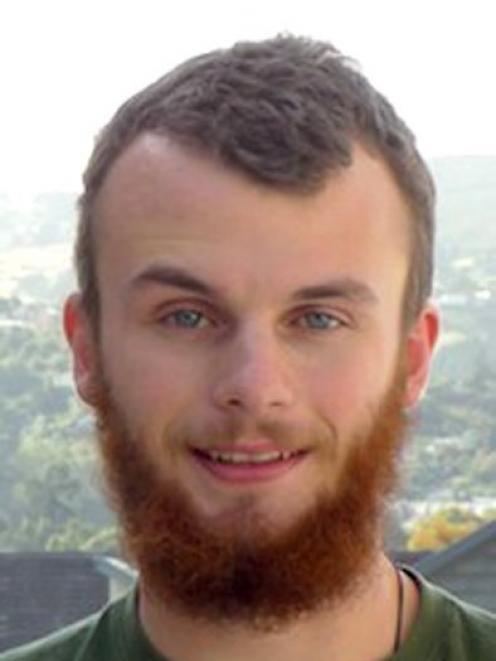Science
Dr. Trainor Secures $820,000 Fellowship to Advance Quantum Crystals

The field of quantum technology has received a significant boost with the announcement that Dr. Trainor, a postdoctoral fellow at the University of Otago, has been awarded the prestigious Royal Society Te Apārangi Mana Tūāpapa Future Leader Fellowship. This fellowship, valued at $820,000 over four years, will enable Dr. Trainor to explore the potential of crystals in quantum memory storage, which could revolutionize computing, security, and networking technologies.
Innovative Research on Rare-Earth-Doped Crystals
Dr. Trainor’s research focuses on specially lab-grown crystals that incorporate trace amounts of rare earth elements like erbium and neodymium. These materials, known as rare-earth-doped magnetically ordered crystals, have shown promise for applications in optical quantum memory. This technology could allow for enhanced data storage capabilities essential for future quantum networks.
During his research, Dr. Trainor has successfully demonstrated the ability to store single particles of light, or photons, in these crystals. He explained that the crystals are cooled to temperatures even colder than outer space, while laser pulses are used to control the rare earth elements. “I have been using such crystals to store single particles of light — photons — and recall them, which could be used as part of a future quantum network,” he stated.
This fellowship will allow Dr. Trainor to further explore and characterize these crystals, specifically seeking to understand the optimal conditions for their functionality. He emphasized that this research is a crucial step towards the practical application and commercialization of quantum technologies.
Additional Fellowships Awarded to Otago Researchers
In addition to Dr. Trainor, several other researchers at the University of Otago received Mana Tūāpapa Future Leader Fellowships. Dr. Alice-Roza Eruera will investigate ancient viruses and their evolution, aiming to uncover their potential applications in biotechnology and medicine. Dr. Rebecca French is set to study whether viruses carried by rats in New Zealand pose a risk of outbreaks among humans.
Dr. Caitlin Owen will work on developing a more transparent and energy-efficient system for automated machine learning, while Dr. Wahineata Smith will examine the experiences of Māori and Tongan families raising children with dual heritages. Each of these projects underscores the diverse range of research being conducted at the university.
Additionally, Professor Neil Gemmell was awarded a Royal Society Mana Tūārangi Distinguished Researcher Fellowship worth $220,000. He will investigate the role of mitochondrial DNA (mtDNA) in fertility, aging, and health using advanced genetic tools. “This work will enhance our understanding of the mitochondrial genome’s sex-specific influence on fitness, behavior, health, and aging,” he noted.
These fellowships not only highlight the innovative research taking place at the University of Otago but also reflect the institution’s commitment to advancing knowledge in key scientific areas. As these researchers delve into their respective projects, their findings may contribute significantly to fields ranging from biotechnology to quantum technology.
-

 Sports2 months ago
Sports2 months agoNetball New Zealand Stands Down Dame Noeline Taurua for Series
-

 Entertainment2 months ago
Entertainment2 months agoTributes Pour In for Lachlan Rofe, Reality Star, Dead at 47
-

 Entertainment3 weeks ago
Entertainment3 weeks agoNew ‘Maverick’ Chaser Joins Beat the Chasers Season Finale
-

 Sports2 months ago
Sports2 months agoSilver Ferns Legend Laura Langman Criticizes Team’s Attitude
-

 Sports1 day ago
Sports1 day agoEli Katoa Rushed to Hospital After Sideline Incident During Match
-

 Politics1 month ago
Politics1 month agoNetball NZ Calls for Respect Amid Dame Taurua’s Standoff
-

 Entertainment2 months ago
Entertainment2 months agoKhloe Kardashian Embraces Innovative Stem Cell Therapy in Mexico
-

 World3 months ago
World3 months agoPolice Arrest Multiple Individuals During Funeral for Zain Taikato-Fox
-

 Sports3 months ago
Sports3 months agoGaël Monfils Set to Defend ASB Classic Title in January 2026
-

 Entertainment1 month ago
Entertainment1 month agoTyson Fury’s Daughter Venezuela Gets Engaged at Birthday Bash
-

 Sports1 month ago
Sports1 month agoHeather McMahan Steps Down as Ryder Cup Host After Controversy
-

 World2 weeks ago
World2 weeks agoSevere Winds Hit New Zealand, Over 100 Flights Canceled





















